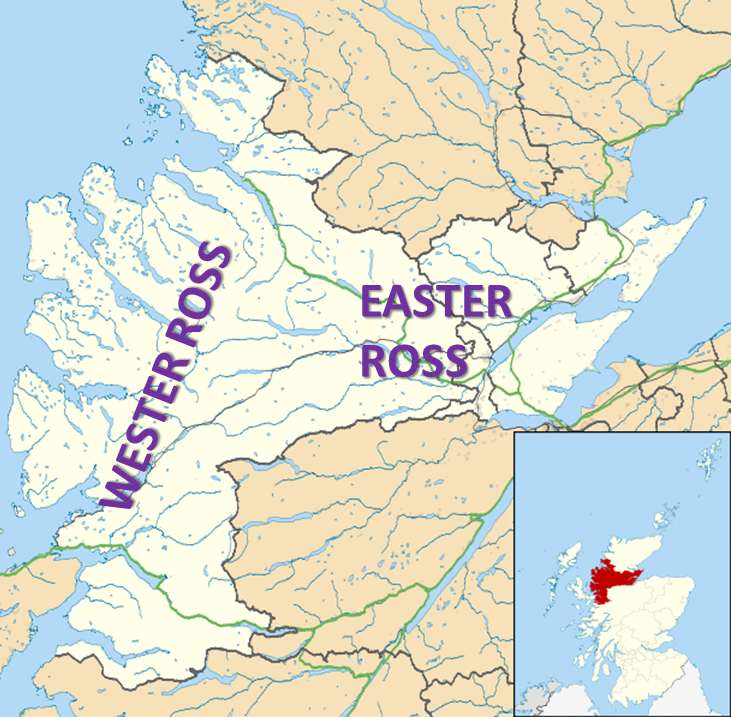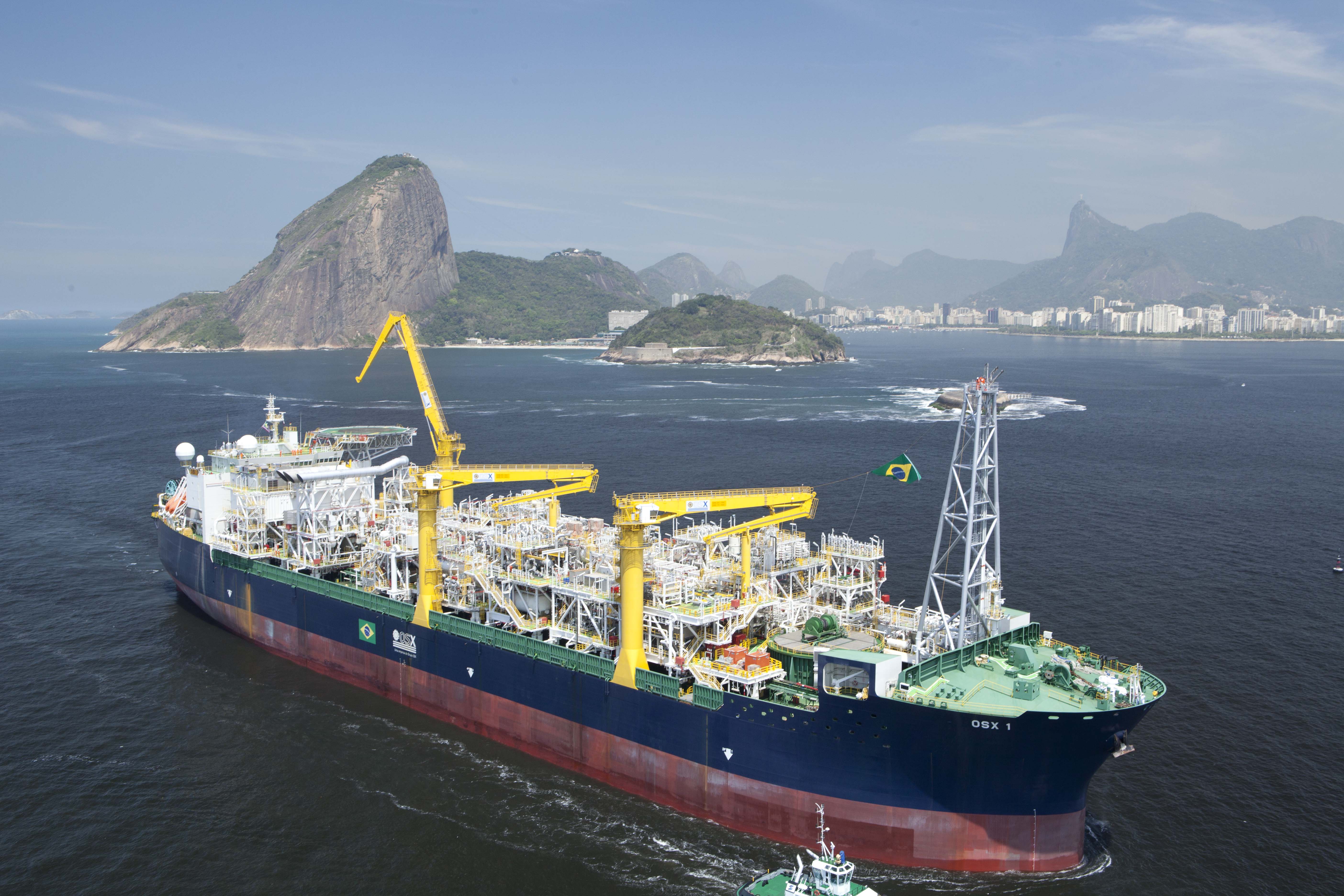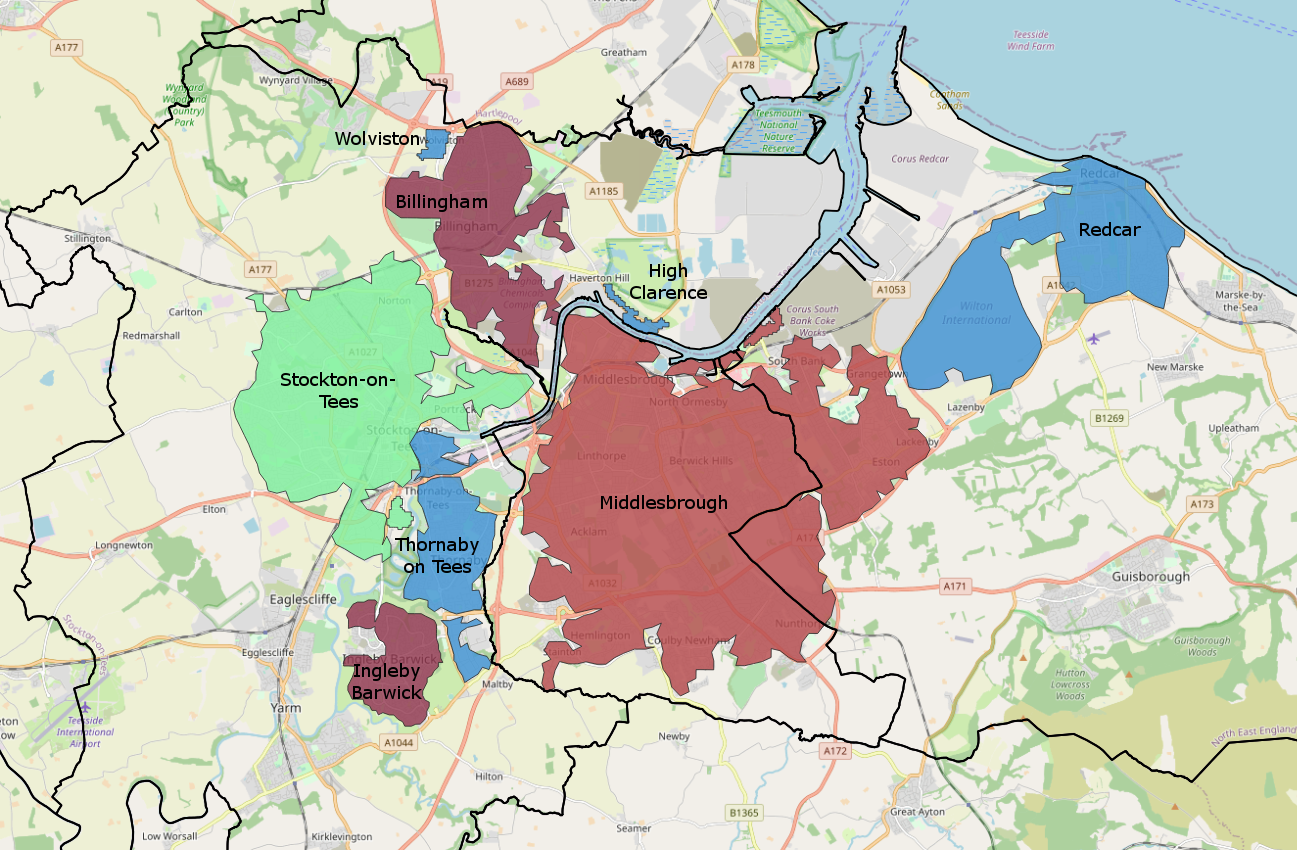|
Fulmar Oil Field
The Fulmar Oilfield is situated 312 km east of Dundee, Scotland, United Kingdom in block number 30/16 and 30/11b. It is operated by Repsol Sinopec who took over from the previous operator, Shell at the end of 2006. At this time Talisman also purchased the equity of the other partners ExxonMobil and Amerada Hess. The field was discovered in December 1975 by well 30/16-6 in a water depth of 82 metres. Estimated ultimate recovery is 544 million barrels (86.5 m3) of oil. It is named after the fulmar, a sea bird. The oil reservoir is located at a depth of 3,050 metres. The "Fulmar A platform" operates above the oilfield. Production started in February 1982 from the Fulmar 'A' platform. This platform is a steel, 8 legged jacket designed by McDermott Engineering and constructed at Nigg, Easter Ross, Scotland. This jacket weighs 12,400 tonnes and supports a topside weight of around 22,560 tonnes. The jacket and platform were installed in July 1979 and June 1980. Design data for th ... [...More Info...] [...Related Items...] OR: [Wikipedia] [Google] [Baidu] |
Scotland
Scotland (, ) is a country that is part of the United Kingdom. Covering the northern third of the island of Great Britain, mainland Scotland has a border with England to the southeast and is otherwise surrounded by the Atlantic Ocean to the north and west, the North Sea to the northeast and east, and the Irish Sea to the south. It also contains more than 790 islands, principally in the archipelagos of the Hebrides and the Northern Isles. Most of the population, including the capital Edinburgh, is concentrated in the Central Belt—the plain between the Scottish Highlands and the Southern Uplands—in the Scottish Lowlands. Scotland is divided into 32 administrative subdivisions or local authorities, known as council areas. Glasgow City is the largest council area in terms of population, with Highland being the largest in terms of area. Limited self-governing power, covering matters such as education, social services and roads and transportation, is devolved from the Scott ... [...More Info...] [...Related Items...] OR: [Wikipedia] [Google] [Baidu] |
Easter Ross
Easter Ross ( gd, Ros an Ear) is a loosely defined area in the east of Ross, Highland, Scotland. The name is used in the constituency name Caithness, Sutherland and Easter Ross, which is the name of both a British House of Commons constituency and a Scottish Parliament constituency. The two constituencies have however different boundaries. Settlements Places in Easter Ross include: * Alness * Dingwall (included in some contexts in the term ''Easter Ross'', though in some contexts it refers to the area to the north-east of Dingwall) * Evanton * Invergordon * Kildary * Milntown of Tarbat (Milton) * Portmahomack * The Seaboard villages: ** Balintore ** Hilton of Cadboll ** Shandwick * Tain Easter Ross is well known for Black Isle and its towns: Avoch, Rosemarkie, Fortrose, and Cromarty. See also * Black Isle * Ross and Cromarty * Ross-shire * Wester Ross Wester Ross () is an area of the Northwest Highlands of Scotland in the council area of Highland. The area is loosel ... [...More Info...] [...Related Items...] OR: [Wikipedia] [Google] [Baidu] |
North Sea Oil Fields
North Sea oil is a mixture of hydrocarbons, comprising liquid petroleum and natural gas, produced from petroleum reservoirs beneath the North Sea. In the petroleum industry, the term "North Sea" often includes areas such as the Norwegian Sea and the area known as "West of Shetland", "the Atlantic Frontier" or "the Atlantic Margin" that is not geographically part of the North Sea. Brent crude is still used today as a standard benchmark for pricing oil, although the contract now refers to a blend of oils from fields in the northern North Sea. From the 1960s to 2014 it was reported that 42 billion barrels of oil equivalent (BOE) had been extracted from the North Sea since when production began, and there is still a potential of 24 billion BOE left remaining there, which is equivalent to about 35 years worth of production, the North Sea will remain as an important petroleum reservoir for years to come. History 1851–1963 Commercial extraction of oil on the shores of the North Sea ... [...More Info...] [...Related Items...] OR: [Wikipedia] [Google] [Baidu] |
Energy Use And Conservation In The United Kingdom
Energy in the United Kingdom came mostly from fossil fuels in 2021. Total World energy supply and consumption, energy consumption in the United Kingdom was 142.0millionTonne of oil equivalent, tonnes of oil equivalent (1,651TWh) in 2019. In 2014, the UK had an energy consumption ''per capita'' of 2.78tonnes of oil equivalent (32.3MWh) compared to a world average of 1.92tonnes of oil equivalent (22.3MWh). Demand for electricity in 2014 was 34.42Watt, GW on average (301.7TWh over the year) coming from a total electricity generation of 335.0TWh. Successive UK governments have outlined numerous commitments to reduce carbon dioxide emissions. One such announcement was the low-carbon economy, Low Carbon Transition Plan launched by the Brown ministry in July 2009, which aimed to generate 30% electricity from renewable sources, and 40% from low carbon content fuels by 2020. Notably, the UK is Wind power in the United Kingdom, one of the best sites in Europe for wind energy, and wind ... [...More Info...] [...Related Items...] OR: [Wikipedia] [Google] [Baidu] |
Energy Policy Of The United Kingdom
The energy policy of the United Kingdom refers to the United Kingdom's efforts towards reducing energy intensity, reducing energy poverty, and maintaining energy supply reliability. The United Kingdom has had success in this, though energy intensity remains high. There is an ambitious goal to reduce carbon dioxide emissions in future years, but it is unclear whether the programmes in place are sufficient to achieve this objective. Regarding energy self-sufficiency, UK policy does not address this issue, other than to concede historic energy security is currently ceasing to exist (due to the decline of North Sea oil production). The United Kingdom historically has a good policy record of encouraging public transport links with cities, despite encountering problems with high speed trains, which have the potential to reduce dramatically domestic and short-haul European flights. The policy does not, however, significantly encourage hybrid vehicle use or ethanol fuel use, options ... [...More Info...] [...Related Items...] OR: [Wikipedia] [Google] [Baidu] |
Piper Alpha Disaster
Piper Alpha was an oil platform located in the North Sea approximately north-east of Aberdeen, Scotland. It was operated by Occidental Petroleum (Caledonia) Limited (OPCAL) and began production in 1976, initially as an oil-only platform but later converted to add gas production. Piper Alpha exploded and sank on 6 July 1988, killing 165 of the men on board, 30 of whose bodies were never recovered, as well as a further two rescue workers after their rescue vessel, which had been trapped in debris and immobilized, was destroyed by the disintegrating rig. Sixty-one workers escaped and survived. The total insured loss was about £1.7 billion (£ billion in ), making it one of the costliest man-made catastrophes ever. At the time of the disaster, the platform accounted for approximately 10% of North Sea oil and gas production. The accident is the world's worst offshore oil disaster in terms of lives lost and industry impact. The Inquiry blamed it on inadequate maintenance and safet ... [...More Info...] [...Related Items...] OR: [Wikipedia] [Google] [Baidu] |
Floating Production Storage And Offloading
A floating production storage and offloading (FPSO) unit is a floating vessel used by the offshore oil and gas industry for the production and processing of hydrocarbons, and for the storage of oil. An FPSO vessel is designed to receive hydrocarbons produced by itself or from nearby platforms or subsea template, process them, and store oil until it can be offloaded onto a tanker or, less frequently, transported through a pipeline. FPSOs are preferred in frontier offshore regions as they are easy to install, and do not require a local pipeline infrastructure to export oil. FPSOs can be a conversion of an oil tanker (like the '' Seawise Giant'') or can be a vessel built specially for the application. A vessel used only to store oil (without processing it) is referred to as a floating storage and offloading (FSO) vessel. The first of a related type, floating liquefied natural gas vessels, went into service in 2016. Types FPSOs are classified into the following types. * ... [...More Info...] [...Related Items...] OR: [Wikipedia] [Google] [Baidu] |
Fulmar Gas Pipeline
The Fulmar Gas Line is a natural gas pipeline which transports natural gas from the central North Sea to St Fergus, Scotland. Originally, the pipeline carried natural gas from Fulmar The fulmars are tubenosed seabirds of the family Procellariidae. The family consists of two extant species and two extinct fossil species from the Miocene. Fulmars superficially resemble gulls, but are readily distinguished by their flight on ... and Clyde fields. Later also other fields in the Central North Sea, such as Kittiwake, Gannet, Nelson, Anasuria, Curlew, and Triton were connected to the pipeline. The length of the pipeline is and diameter is . It has capacity of wet natural gas per year. The pipeline commenced operation in May 1986. It is owned and operated by Shell U.K. Limited and Esso Exploration and Production UK Limited. References {{Shell oil 1986 establishments in Scotland Energy infrastructure completed in 1986 ExxonMobil buildings and structures Natural ... [...More Info...] [...Related Items...] OR: [Wikipedia] [Google] [Baidu] |
Teesside
Teesside () is a built-up area around the River Tees in the north of England, split between County Durham and North Yorkshire. The name was initially used as a county borough in the North Riding of Yorkshire. Historically a hub for heavy manufacturing, the number of people employed in this type of work declined from the 1960s onwards, with steel-making and chemical manufacturing (particularly through Imperial Chemical Industries) replaced to some extent by new science businesses and service sector roles. History 1968–1974: County borough Before the county of Cleveland was created, the area (including Stockton-on-Tees) existed as a part of the North Riding of Yorkshire, due to most land being south of the Tees. Teesside was created due to Stockton-on-Tees being linked heavily with Thornaby (which had amalgamated with South Stockton/Mandale to form the Borough of Thornaby), Middlesbrough and Redcar by industry. Compared to the modern Teesside conurbation, the area was sma ... [...More Info...] [...Related Items...] OR: [Wikipedia] [Google] [Baidu] |
Norpipe
Norpipe is a subsea oil and natural gas pipelines system in the North Sea. It supplies oil from the Norwegian Ekofisk and associated fields in the North Sea to the United Kingdom and natural gas to Germany. Oil pipeline The Norpipe oil pipeline starts at the Ekofisk 2/4-J facility. In addition to Ekofisk (Cod, Ekofisk, West Ekofisk, Tor, Albuskjell, Eldfisk, Edda, and Embla fields) the pipeline carries oil from Valhall, Hod, Gyda, Ula, Tambar, and Oselvar fields in Norwegian zone, and from several UK's oil fields, such as Fulmar and Judy, see table. A tie-in point for UK fields is located about from Ekofisk. It has a landfall at Teesside Refinery in England. The length of pipeline is and it has diameter of . The pipeline is owned by Norpipe Oil AS, a consortium which includes ConocoPhillips Skandinavia AS (35.05%), TotalFinaElf Exploration Norge AS (34.93%), Statoil (18.5%), Eni Norge AS (6.52%), and SDFI (5%). It is operated by ConocoPhillips Skandinavia AS. ... [...More Info...] [...Related Items...] OR: [Wikipedia] [Google] [Baidu] |
Nigg, Highland
Nigg (from the gd, An Neag meaning "the notch", referring to a feature of the hills above the parish church) is a village and parish in Easter Ross, administered by the Highland Council. It lies on the north shore of the entrance to the Cromarty Firth. Nigg Old Church The present parish church is an 18th-century building on an early Christian site dating back to at least the 8th century. The Nigg Stone, one of the most elaborate stone monuments of early medieval western Europe, is preserved in a room at the west end of the church. This late 8th century Pictish cross-slab formerly stood in the churchyard, but was moved indoors for preservation in recent years. The nearby manse is one of the oldest to survive in Scotland, dating back to the first half of the 17th century. It is now privately owned and no longer used as the parish minister's residence. Nigg Old has its odd and curious features. In the churchyard is the Cholera Stone, dating from the cholera epidemic of 1832. ... [...More Info...] [...Related Items...] OR: [Wikipedia] [Google] [Baidu] |
North Sea
The North Sea lies between Great Britain, Norway, Denmark, Germany, the Netherlands and Belgium. An epeiric sea on the European continental shelf, it connects to the Atlantic Ocean through the English Channel in the south and the Norwegian Sea in the north. It is more than long and wide, covering . It hosts key north European shipping lanes and is a major fishery. The coast is a popular destination for recreation and tourism in bordering countries, and a rich source of energy resources, including wind and wave power. The North Sea has featured prominently in geopolitical and military affairs, particularly in Northern Europe, from the Middle Ages to the modern era. It was also important globally through the power northern Europeans projected worldwide during much of the Middle Ages and into the modern era. The North Sea was the centre of the Vikings' rise. The Hanseatic League, the Dutch Republic, and the British each sought to gain command of the North Sea and access t ... [...More Info...] [...Related Items...] OR: [Wikipedia] [Google] [Baidu] |





